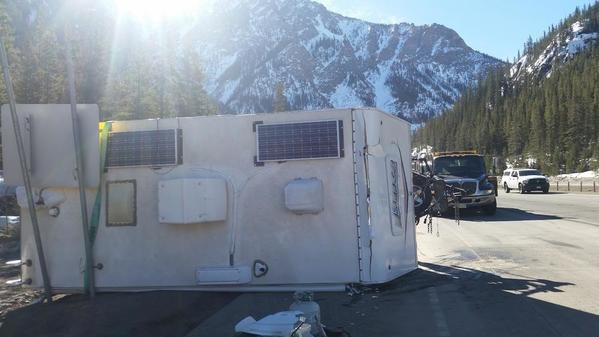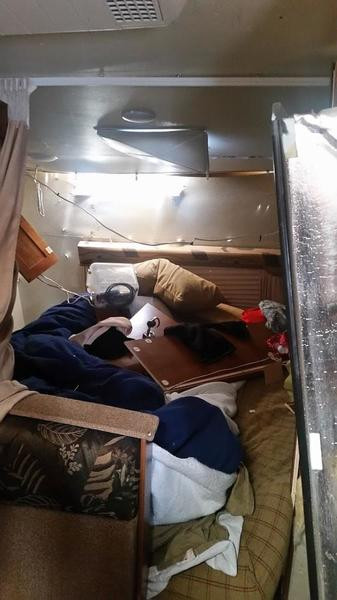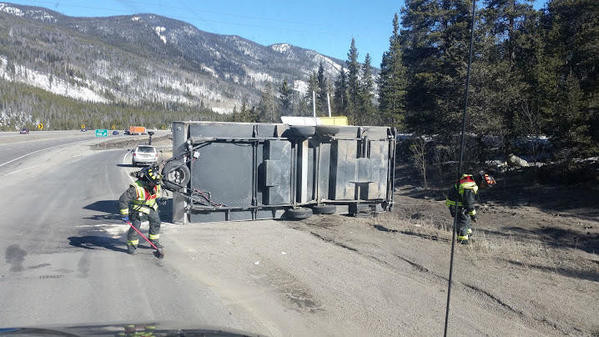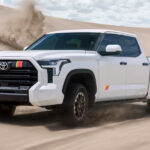Can A Toyota 4runner Tow A Trailer? Absolutely, the Toyota 4Runner is a capable SUV that can tow trailers, but it’s essential to understand its towing capacity and limitations. At millertoyota.net, we can help you explore the 4Runner’s towing capabilities and find the right model and equipment for your needs. Whether you are planning a weekend camping trip or need to haul equipment for work, understanding your 4Runner’s towing potential is crucial for a safe and successful journey. Discover the towing capacity, safety features, and the best trailers for your 4Runner, ensuring a smooth and secure towing experience.
1. Understanding the Toyota 4Runner’s Towing Capacity
Yes, the Toyota 4Runner offers a substantial towing capacity of up to 5,000 pounds, making it suitable for various towing needs. This capacity allows you to tow small to medium-sized trailers, boats, and other recreational equipment. Understanding the specifics of your 4Runner model and its towing package is key to maximizing its capabilities and ensuring safe towing.
1.1. Towing Capacity by Model Year
The Toyota 4Runner has maintained a consistent towing capacity of 5,000 pounds for many model years, offering reliability for towing needs. However, it’s always a good idea to verify the specific towing capacity for your model year in the owner’s manual. This consistency ensures that whether you have a newer or older 4Runner, you can generally expect the same level of towing performance.
1.2. Factors Affecting Towing Capacity
Several factors can affect the towing capacity of your Toyota 4Runner, including the vehicle’s weight, cargo, and any modifications. Overloading the vehicle or exceeding the Gross Vehicle Weight Rating (GVWR) can compromise safety and performance. Ensuring that your 4Runner is properly equipped and maintained is vital for safe towing.
1.3. Towing Package Features
The Toyota 4Runner’s towing package includes features such as a Class IV towing receiver hitch and wiring harness with a 4- and 7-pin connector, enhancing its towing capabilities. These features provide the necessary connections for trailer lights and brakes, ensuring a safe and compliant towing setup. The towing package is designed to integrate seamlessly with the 4Runner’s systems, providing added confidence and convenience.
2. Choosing the Right Trailer for Your Toyota 4Runner
Selecting the right trailer is crucial for safe and efficient towing with your Toyota 4Runner. Consider the weight and size of the trailer, as well as the type of cargo you’ll be hauling. Matching the trailer to your 4Runner’s capabilities ensures a balanced and controlled towing experience.
2.1. Types of Trailers Compatible with the 4Runner
Several types of trailers are compatible with the Toyota 4Runner, including utility trailers, small travel trailers, boat trailers, and cargo trailers. Utility trailers are great for hauling equipment, while small travel trailers offer comfortable camping options. Boat trailers allow you to transport your watercraft, and cargo trailers provide enclosed space for various goods.
2.2. Calculating Trailer Weight and Tongue Weight
Calculating trailer weight and tongue weight is essential for safe towing. The tongue weight should be approximately 10-15% of the total trailer weight to ensure stability. Using a tongue weight scale can help you accurately measure and adjust the load for optimal towing performance. Proper weight distribution minimizes sway and enhances control.
2.3. Recommended Trailers for the Toyota 4Runner
For the Toyota 4Runner, suitable trailers include lightweight travel trailers under 3,000 pounds, small boat trailers, and utility trailers for hauling gear. Brands like Scamp, Casita, and Jayco offer models that align well with the 4Runner’s towing capacity. These trailers are designed to be aerodynamic and easy to manage, making your towing experience more enjoyable.
 Toyota 4Runner towing a trailer through a scenic mountain pass
Toyota 4Runner towing a trailer through a scenic mountain pass
3. Essential Towing Equipment and Accessories
Equipping your Toyota 4Runner with the right towing equipment and accessories is crucial for safety and performance. Investing in quality components ensures a secure and reliable towing experience. From hitches to brake controllers, the right gear can make a significant difference.
3.1. Choosing the Right Hitch
Selecting the right hitch for your Toyota 4Runner involves considering the hitch class and weight rating. A Class IV hitch is typically recommended for the 4Runner, as it is designed to handle the vehicle’s maximum towing capacity. Ensure the hitch is properly installed and securely attached to the vehicle’s frame.
3.2. Brake Controllers and Sway Control
Brake controllers are essential for trailers with electric brakes, allowing you to synchronize the trailer brakes with your 4Runner’s brakes. Sway control devices help minimize trailer sway, enhancing stability and control, especially in windy conditions. These devices provide added safety and peace of mind during your towing adventures.
3.3. Towing Mirrors and Lighting
Towing mirrors extend your field of vision, helping you see around the trailer and monitor traffic. Proper lighting, including brake lights, turn signals, and running lights, is crucial for safety and compliance with regulations. Ensure all lights are functioning correctly before each trip.
4. Safe Towing Practices for Your Toyota 4Runner
Adhering to safe towing practices is vital for protecting yourself, your vehicle, and others on the road. Proper preparation, careful driving, and regular maintenance are key to a safe towing experience. Always prioritize safety and follow established guidelines.
4.1. Pre-Towing Checklist
Before each trip, perform a pre-towing checklist to ensure all components are in good working order. Check the hitch connection, safety chains, electrical connections, tire pressure, and brake function. Verify that all cargo is properly secured and that the trailer is level.
4.2. Driving Tips for Towing
When towing, drive at a safe and moderate speed, allowing for increased stopping distances. Avoid sudden maneuvers and be cautious when changing lanes or making turns. Use lower gears when climbing or descending steep grades to maintain control. Regularly check your mirrors and be aware of your surroundings.
4.3. Maintaining Your Towing Equipment
Regularly inspect and maintain your towing equipment to ensure optimal performance and safety. Check the hitch for signs of wear or damage, lubricate moving parts, and inspect the wiring for corrosion. Keep your trailer tires properly inflated and balanced. Addressing issues promptly can prevent breakdowns and accidents.
 Close-up of a properly installed hitch on a Toyota 4Runner
Close-up of a properly installed hitch on a Toyota 4Runner
5. Understanding Towing Terminology
Familiarizing yourself with towing terminology helps you make informed decisions and communicate effectively with professionals. Understanding key terms ensures you are well-prepared for all aspects of towing. This knowledge enhances your confidence and safety.
5.1. Key Towing Terms
- Gross Vehicle Weight Rating (GVWR): The maximum allowable weight of the vehicle, including cargo and passengers.
- Gross Combined Weight Rating (GCWR): The maximum allowable weight of the vehicle and trailer combined.
- Tongue Weight: The amount of weight the trailer exerts on the hitch.
- Payload Capacity: The maximum weight of cargo and passengers the vehicle can carry.
- Brake Controller: A device that synchronizes the trailer brakes with the vehicle’s brakes.
5.2. GVWR vs. GCWR
GVWR refers to the maximum weight of the vehicle itself, while GCWR includes the combined weight of the vehicle and trailer. Exceeding either of these ratings can compromise safety and performance. Always stay within the specified limits to ensure a safe towing experience.
5.3. Importance of Knowing Your Vehicle’s Limits
Knowing your vehicle’s limits is essential for preventing accidents and ensuring the longevity of your vehicle. Overloading can strain the engine, transmission, and brakes, leading to costly repairs. Adhering to weight limits protects your investment and keeps you safe on the road.
6. Overcoming Common Towing Challenges
Addressing common towing challenges can enhance your confidence and safety on the road. Being prepared for various situations allows you to handle them effectively. With the right knowledge and skills, you can overcome these challenges.
6.1. Trailer Sway and How to Prevent It
Trailer sway can be caused by factors such as wind, uneven road surfaces, or improper weight distribution. To prevent sway, ensure the trailer is properly loaded with 10-15% of the weight on the tongue. Use a sway control device and maintain a safe speed. Adjusting your driving technique can also help minimize sway.
6.2. Managing Uphill and Downhill Towing
When towing uphill, use lower gears to maintain engine power and prevent overheating. When descending steep grades, use engine braking to control your speed and avoid excessive brake use. Shift into a lower gear and maintain a steady pace. Regular brake checks are also essential.
6.3. Towing in Inclement Weather
Towing in inclement weather requires extra caution. Reduce your speed, increase your following distance, and be aware of changing road conditions. Avoid sudden maneuvers and brake gently. Ensure your lights are functioning properly and consider postponing your trip if conditions are severe.
7. Toyota 4Runner Maintenance for Towing
Proper maintenance is essential for ensuring your Toyota 4Runner is ready for towing. Regular servicing keeps your vehicle in top condition and prevents breakdowns. Follow the recommended maintenance schedule and address any issues promptly.
7.1. Regular Maintenance Tasks
Regular maintenance tasks for towing include checking and changing the engine oil, transmission fluid, brake fluid, and coolant. Inspect the brakes, tires, and suspension components. Ensure all fluids are at the proper levels and replace any worn parts.
7.2. Importance of Transmission Service
The transmission is a critical component for towing, and regular service is essential to prevent overheating and damage. Change the transmission fluid according to the manufacturer’s recommendations and inspect for leaks. Proper transmission maintenance ensures smooth and reliable performance.
7.3. Tire Maintenance for Towing
Proper tire maintenance is crucial for safe towing. Check the tire pressure regularly and ensure it matches the recommended levels for towing. Inspect the tires for wear and damage and replace them as needed. Rotating the tires can help ensure even wear and extend their lifespan.
8. Real-World Towing Experiences with the Toyota 4Runner
Hearing from other Toyota 4Runner owners about their towing experiences can provide valuable insights. Real-world experiences offer practical tips and advice. Learning from others can help you prepare for your own towing adventures.
8.1. Case Studies of 4Runner Towing
Many 4Runner owners have successfully towed various types of trailers, from small campers to boats. These case studies highlight the vehicle’s versatility and reliability. Learning from these experiences can help you choose the right setup for your needs.
8.2. Owner Reviews and Testimonials
Owner reviews and testimonials often praise the 4Runner’s towing capabilities, noting its strong engine and stable handling. Many owners appreciate the vehicle’s ability to handle moderate towing tasks with ease. These testimonials provide confidence in the 4Runner’s performance.
8.3. Tips and Tricks from Experienced Towers
Experienced towers recommend using a weight-distributing hitch, monitoring tire pressure, and driving at a moderate speed. They also advise planning your route ahead of time and being aware of potential hazards. These tips can help you have a safer and more enjoyable towing experience.
 Toyota 4Runner parked at a campsite with a small travel trailer
Toyota 4Runner parked at a campsite with a small travel trailer
9. Enhancing Your 4Runner’s Towing Performance
Several upgrades can enhance your Toyota 4Runner’s towing performance, providing added power and stability. These enhancements can improve your overall towing experience. Consider these options to maximize your 4Runner’s capabilities.
9.1. Aftermarket Upgrades
Aftermarket upgrades such as performance chips, air intakes, and exhaust systems can increase your 4Runner’s horsepower and torque. Upgraded brakes and suspension components can also improve handling and stability. These upgrades can provide a noticeable improvement in towing performance.
9.2. Suspension Upgrades for Towing
Suspension upgrades, such as air springs or upgraded shocks, can help level the vehicle and improve ride quality when towing. These upgrades can also reduce sag and improve handling. A properly upgraded suspension enhances safety and comfort.
9.3. Cooling System Upgrades
Upgrading the cooling system with a larger radiator or transmission cooler can help prevent overheating when towing in hot conditions. These upgrades ensure that your engine and transmission stay cool, even under heavy loads. Proper cooling is essential for maintaining performance and preventing damage.
10. The Toyota 4Runner vs. Other Towing SUVs
Comparing the Toyota 4Runner to other towing SUVs helps you understand its strengths and weaknesses. This comparison allows you to make an informed decision based on your needs. Consider the 4Runner’s features and capabilities in relation to its competitors.
10.1. Comparison with Similar SUVs
Compared to SUVs like the Jeep Grand Cherokee and Ford Explorer, the Toyota 4Runner offers a similar towing capacity with a focus on reliability and off-road capability. The 4Runner’s rugged construction and proven track record make it a popular choice for towing. Each SUV has its strengths, so consider your specific needs.
10.2. Pros and Cons of Towing with a 4Runner
Pros of towing with a 4Runner include its robust engine, stable handling, and available towing package. Cons may include lower fuel economy when towing and a less luxurious interior compared to some competitors. Weighing these pros and cons helps you determine if the 4Runner is the right choice for you.
10.3. Why Choose a 4Runner for Towing
The Toyota 4Runner is a great choice for towing due to its reliability, durability, and strong resale value. Its off-road capabilities also make it ideal for accessing remote campsites and trailheads. If you need a dependable SUV for both daily driving and towing, the 4Runner is an excellent option.
11. Tips for Finding the Best Toyota 4Runner for Towing at Miller Toyota
Finding the right Toyota 4Runner for towing at Miller Toyota is easy with our wide selection and knowledgeable staff. We can help you find the perfect model and configuration for your needs. Our team is dedicated to providing exceptional service and support.
11.1. Exploring Models and Features at Miller Toyota
At Miller Toyota, you can explore a variety of 4Runner models and trim levels, each offering different features and capabilities. Our sales team can help you understand the differences and find the right combination of features for your towing needs. We are committed to helping you make an informed decision.
11.2. Financing and Trade-In Options
Miller Toyota offers a range of financing options to help you purchase your new or used 4Runner. We also accept trade-ins, making it easy to upgrade to a more capable towing vehicle. Our finance team is dedicated to finding the best rates and terms for your budget.
11.3. Scheduling a Test Drive and Consultation
Schedule a test drive at Miller Toyota to experience the 4Runner’s performance firsthand. Our team can provide a consultation to discuss your towing needs and recommend the best model and equipment. We are here to answer your questions and provide expert advice.
Ready to experience the towing capabilities of the Toyota 4Runner? Visit millertoyota.net today to explore our inventory, schedule a test drive, and learn more about our financing options. Let Miller Toyota help you find the perfect 4Runner for your towing needs! Visit us at 208 N Maple Grove Rd, Boise, ID 83704, or call us at +1 (208) 376-8888.
12. FAQs About Towing with a Toyota 4Runner
12.1. What is the maximum towing capacity of a Toyota 4Runner?
The Toyota 4Runner has a maximum towing capacity of 5,000 pounds, making it suitable for towing various types of trailers. Ensure your trailer’s weight is within this limit for safe towing. Staying within the specified limit is crucial for preventing accidents and maintaining vehicle performance.
12.2. What type of hitch do I need for my 4Runner?
A Class IV hitch is typically recommended for the Toyota 4Runner, as it is designed to handle the vehicle’s maximum towing capacity. Ensure the hitch is properly installed and securely attached to the vehicle’s frame. Proper installation is essential for safe and reliable towing.
12.3. Do I need a brake controller for my trailer?
If your trailer has electric brakes, you will need a brake controller to synchronize the trailer brakes with your 4Runner’s brakes. Brake controllers provide added safety and control when towing. Investing in a quality brake controller is highly recommended for trailers with electric brakes.
12.4. How do I calculate the tongue weight of my trailer?
The tongue weight should be approximately 10-15% of the total trailer weight to ensure stability. Use a tongue weight scale to accurately measure and adjust the load for optimal towing performance. Proper weight distribution minimizes sway and enhances control.
12.5. What are the best trailers for a Toyota 4Runner?
Suitable trailers for the Toyota 4Runner include lightweight travel trailers under 3,000 pounds, small boat trailers, and utility trailers for hauling gear. Choose a trailer that matches your needs and stays within the 4Runner’s towing capacity. Consider factors such as weight, size, and aerodynamics when selecting a trailer.
12.6. Can I tow a boat with my Toyota 4Runner?
Yes, you can tow a boat with your Toyota 4Runner, provided the boat and trailer’s combined weight is within the vehicle’s 5,000-pound towing capacity. Ensure you have the proper hitch and lighting connections. Safe towing requires careful preparation and attention to detail.
12.7. What maintenance is required for towing with a 4Runner?
Regular maintenance tasks for towing include checking and changing the engine oil, transmission fluid, brake fluid, and coolant. Inspect the brakes, tires, and suspension components. Follow the manufacturer’s recommendations for service intervals. Proper maintenance ensures your 4Runner is ready for towing.
12.8. How can I prevent trailer sway?
To prevent trailer sway, ensure the trailer is properly loaded with 10-15% of the weight on the tongue. Use a sway control device and maintain a safe speed. Adjusting your driving technique can also help minimize sway. Being proactive is essential for preventing sway.
12.9. What should I do if my trailer starts to sway?
If your trailer starts to sway, avoid sudden braking or steering. Gently ease off the accelerator and allow the vehicle to slow down. Use the manual trailer brake controller, if equipped, to gently apply the trailer brakes. Once the sway is under control, pull over to a safe location and inspect the trailer and load.
12.10. Where can I find the best Toyota 4Runner for towing in Boise, Idaho?
You can find the best Toyota 4Runner for towing at Miller Toyota in Boise, Idaho. Visit millertoyota.net to explore our inventory, schedule a test drive, and learn more about our financing options. Our team is dedicated to helping you find the perfect vehicle for your needs.
